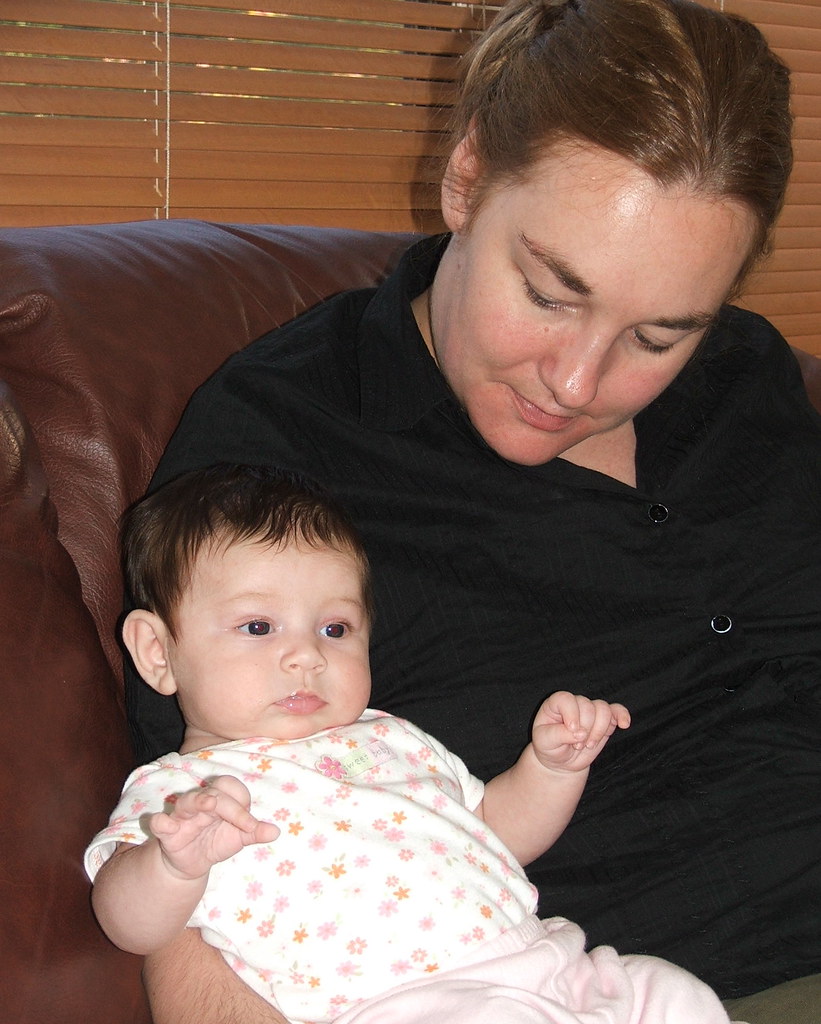What all New Moms must know
Childbirth — a notable nexus in a woman’s life


Where it comes to the restoration of a mother’s pre-childbirth state of physical and mental well being, there is frequently a disparity in the care readily available to new moms during the initial 6-7 weeks of motherhood — the postpartum window. Typically, the first post delivery doctor appointment is at 6 weeks. During this period, the new mom can be quite fragile and will be facing countless unfamiliar obstacles. The “baby blues” and postpartum depression are a particular vulnerability during this time as well.
Adding a wonderful new baby to your family is a pivotal moment in life. You — the new mother — can define that moment: Will the change be in a positive direction, full of joy and new experiences or the opposite? Your focus and actions, from the start of pregnancy, will set the tone for your post partum experience.
Receiving the appropriate amount of rest, healthy food, fresh air, exercise, and caring ministration from your partner, friends and family is crucial to ensure a delightful, healthy transition into new motherhood, what should be a very euphoric and fulfilling period.
Otherwise, it’s quickly obvious that when the mom is depressed, the whole household suffers. It’s in the best interests of your family, as well as the new mom, to diligently avoid depression. You’ll find that when mom is healthy and happy, new baby and family are happy as well.
Moms are the key to Family Happiness
The reality is that by taking care of your own health and wellness, your confidence and happiness as a mom will be enhanced. By building a strong foundation of love and positive energy, you will ultimately have more to offer your family and new baby. Mothers tend to focus on others more than themselves the majority of the time, so be sure to focus some energy on yourself. It is a necessity, not a luxury, and nothing to feel guilty about since the entire family will enjoy the resultant benefits.
A unique opportunity for new mothers.
The period immediately following childbirth should be an extremely happy time. Unfortunately it also happens to be one of the most vulnerable intervals in a woman’s life, mentally. A new mom can use this time to produce an exciting new life for herself and for her family, choosing a life with deeper meaning and greater health and happiness. These guidelines were developed as a process to aid new moms in regaining energy and vitality quickly after delivery and to unify and strengthen the family’s life.
How normal is postpartum anxiety?
It has been disclosed through various studies that 80% of new mothers experience some degree of the “baby blues” after childbirth and 10-15 % suffer from more severe postpartum anxiety. The baby blues typically hit approximately 3 – 5 days after the birth. Postpartum depression begins a bit later, but continues for a longer period of time – sometimes as long as 2 years! The symptoms are mostly anxiety, depression, and unpredictable mood changes, like crying for no obvious reason. The new mom feels overwhelmed and incapable of managing the additional responsibilities of a new baby along with household chores and personal commitments, often losing interests in activities beyond those absolutely required.
It is incredibly inconvenient that during this time, which should be one of the happiest, personal chemistry can make it one of the most challenging. Taking excellent care of yourself is a powerful prevention measure that can be taken to ensure mom stays healthy, happy, and to avoid postnatal depression altogether.
What does it feel like to have postpartum anxiety?


The popular TV personality, Marie Osmond, experienced a severe case of postpartum anxiety. She wrote a book about her experience called Behind the Smile: My Journey out of Postpartum Anxiety (Osmond, 2001) In it she states: “Postpartum depression is an uncaring invader that holds over 15 percent of new moms captive. It floods them with self-doubt, stress and anxiety, and sensations of shame that can lead to seclusion.” In her case, she was able to recognize her symptoms and had the good sense to turn her infant over to her nanny and go get help, going so far as to temporarily move to a hotel before consulting with a qualified professional to address her condition and get back on track. While not everyone has the luxury of checking out so completely, help is out there, one only need look for experts and publications that will point you in the right direction.
Today we find consideration for new mothers has decreased in some regard. Hospital stays are shorter, and less of an interval is provided for new moms to get a grip on their new lifestyle. There must be time for them to discover ways to care for their infant as well as themselves.
The suggestions that follow are culled from the many years of experience moms are willing to share as well as discoveries made that make motherhood an easier transition.
7 ancient secrets to restoring vitality and bliss after giving birth:
1. Make Sure you really rest at home after giving birth. Make your best effort to rest at home for 4-7 weeks. It may very well be the most important thing you can do for yourself. It typically will take approximately 6 weeks for your insides to heal and if you’re resting properly while this is happening, it will go much smoother and you’ll feel much better. In ancient cultures, women remained in seclusion with their families for this period, and the practice is considered one of the secrets of avoiding potential challenges, for both you and your baby.
2. If your baby is napping, you best be napping too! Don’t make the mistake of trying to catch up on chores during this break, you’ll miss out! Since you won’t be getting the sleep you need each night, it only makes sense that you nap when you can to get a bit of extra rest.


To maximize your naps, getting a much deeper and enhanced quality of rest during the time available, consider techniques such as Transcendental Meditation (TM). A well documented mental technique to relax and relieve stress, TM can be practiced anywhere in 20 minutes sessions that you may find more restful than an entire night’s sleep once you’re proficient in the exercise. Studies have shown that regular practice of TM can have many benefits, like better quality of sleep, reduced stress and depression, and improved mind/body coordination.
Seriously investigate this strategy and discover if the practice is a fit for you. Typically well suited for new moms as it can be done alone, practically anywhere.
3. Get plenty of sleep; go to bed at 9:30 PM or earlier. Attributable to the natural rhythms of the body, what sleep you manage to get prior to midnight is especially valuable. Retiring early bolsters your physiology and psychology and will speed up restoration of energy and vigor after giving birth.
4. Prepare for restful sleep by participating in quiet, peaceful activities you enjoy. Don’t watch violent or exciting TV programs or do anything else that might be emotionally distressing right before bed. Read a book quietly or listen to calming music, any kind of activities that promote a serene mental state. When the mind relaxes, so does the body.
5. Control visitor volume. Be sure to keep the number of visitors under control during the first, critical weeks. As much as you will want to share your joy with friends and family, it is essential to control the number of visitors and how long they stay, to safeguard rest time. Just regulate the traffic, ensuring no one is overwhelmed. It’s best to have an adult side kick that can help enforce your limitations without adding additional stress to your recovery. 10 to 15 minutes per visit is a good interval to start with. Adjust as your condition improves.
6. Build a charming, comfortable“nest” in your home, convenient and cozy, where you will love to spend time recuperating, resting, and rejuvenating yourself. Prepared ahead of time, having this special “nest” waiting will encourage you to take advantage of the space. Fill it with things you love, and that you’ll want to have access to while you come back to yourself. Music, a good reading light, a nook for baby, whatever you can think of, ready at hand and there to lift your mood and spirit.
7. Develop a support system. Include your partner as part of your pre-planning. They can be very helpful in things like arranging for meals, perhaps prepared by a group of friends taking turns, or to help with the other household chores – cleaning, running to the store, watching other children in the family, etc.
It might even be a good idea to seriously consider hiring help for a few weeks if you don’t have an existing support system nearby.
Incorporating any or all of these suggestions into your lifestyle will most definitely help you avoid depression issues after giving birth. Whether this is your first child or one of many, there are plenty of programs out there that will guide you to a happy and relaxed future with your new family. If your challenges become more serious, seek professional help and guidance. Understand you’re not alone!
——————————————————
ABOUT NANNIES ON THE GO:
We are one of the premier Dallas Nanny Agencies that provide skilled, qualified nannies to families on an as-needed, part-time or full-time basis. Call us today at: (817) 442-0225 or Email: info@nanniesonthego.net
RELATED POSTS: